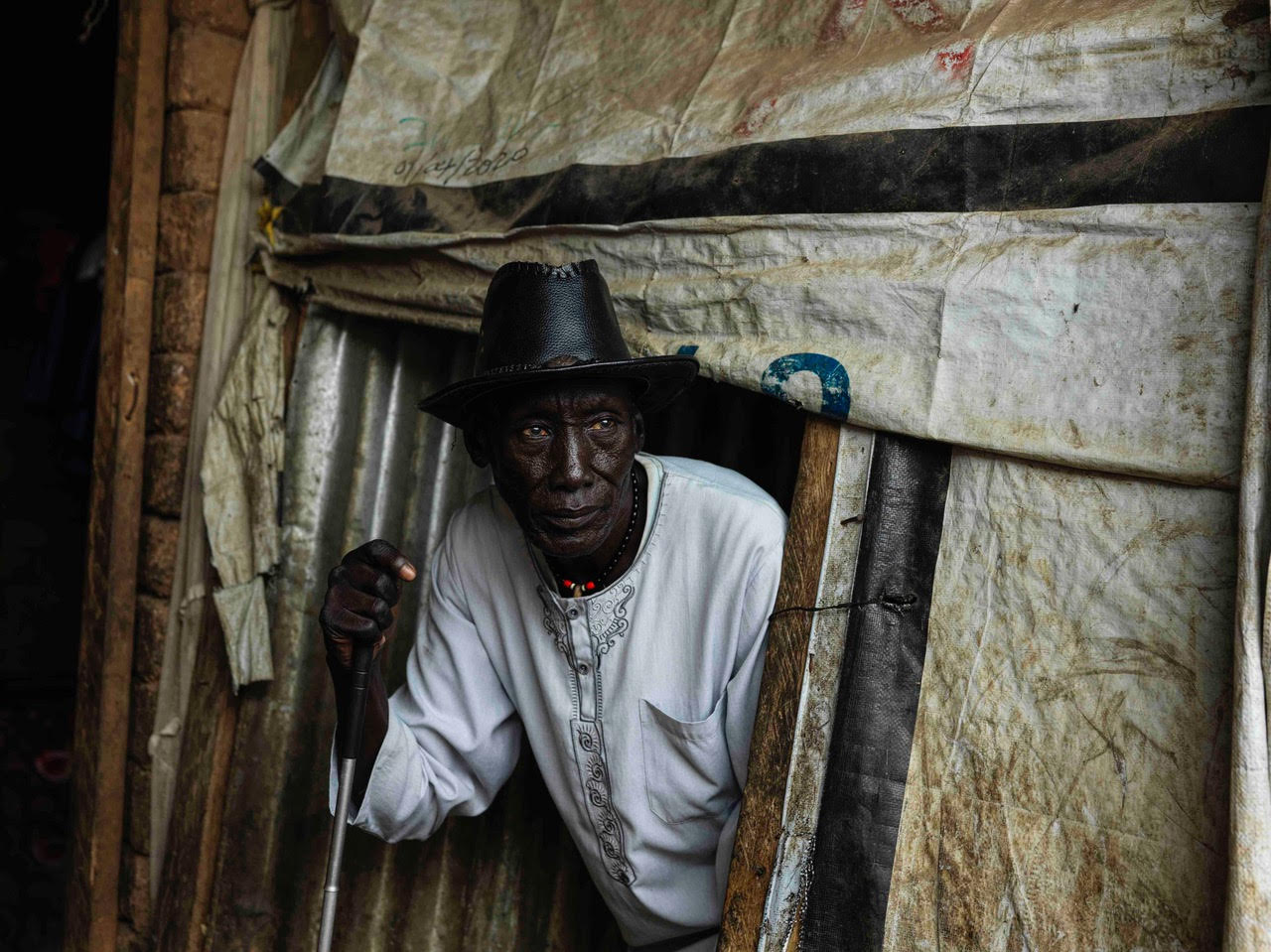"I woke up in a refugee camp in the middle of coronavirus"

Since civil war broke out in South Sudan in 2013, millions of people have been forced to flee their homes, with many escaping violence and conflict. Densely populated camps for displaced people and UN protection of Civilian Sites house many of them, despite being intended as a temporary solution to what has become a protracted humanitarian crisis.
Kiir unexpectedly found himself at one of the camps near Juba, South Sudan’s capital city, six months ago in the middle of the coronavirus outbreak.
One day, after spending time tending to the land, a recurring pain Kiir had in his lower abdomen took a turn for the worse. The pain was unbearable and the village had no health centres. Unable to reach help, he lost consciousness.
When Kiir woke up, he wasn’t at home anymore. His wife had used all the money they had to transport him to Juba, where she’d heard a clinic at the camp would take him in for free. He was able to have emergency surgery but, once he recovered, they had nothing left to pay for their return. They have been living at the camp ever since.
"I'm surviving here because I have a sister in the camp who didn't marry, so my wife and I can stay with her and she shares with us the food she has left."
Because he isn't registered in the camp, he doesn't receive any food aid; "I have nothing and no way to go back."
While Kiir was recovering from surgery, movement restrictions were imposed in Juba to prevent the spread of coronavirus. People in the camps rely on using communal facilities for their daily needs and must move around to earn a living, so social distancing measures caused additional stress and hardship.
"When this outbreak came people became very stressed, so much stress has come within the community, some of them have even passed away."
The suffering doubled for Kiir who was away from his family during the outbreak.
"I miss my home because I left my four children with their grandmother. If I had a way to go back, I would've already returned."
The most vulnerable older people in crowded camps like this one are subject to extreme hardship, but Age International (with our partners HelpAge International and HDC) is providing food, clean water, and hygiene items. We’re also providing cash assistance, which provides the most vulnerable older people like Kiir with a rare opportunity to spend money as required to meet their personal needs.
Help us to continue supporting older people around the world
Whether with better healthcare, a secure income or life-saving aid – your gift could help change lives.
 Follow us on social media
Follow us on social media
Keep seeing our stories or ask us a question - connect on Facebook and LinkedIn.
Read more stories from the ground
Read more of the latest news and stories on our work in combating the coronavirus in low to middle income countries.
